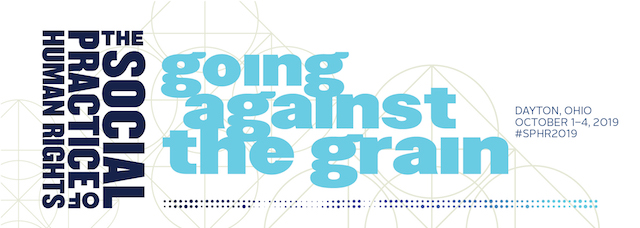Paper/Proposal Title
The Human Right to Science
Location
The Human Right to Science
Start Date
10-2-2019 11:30 AM
End Date
10-2-2019 1:00 PM
Keywords
science, human rights
Abstract
Human rights may be game changers to science. Science is under pressure. The ability to do science, to gain scientific educations, and to make and implement public policies based on science are under attack globally. Harms from doing science continue despite greater attention. Individuals are harmed in the name of science and scientists are persecuted for doing their work. The human right to science may change these scenarios. The human right to science belongs to everyone. Discrimination along lines of nationality, gender, skin color, beliefs, and other markers is not permitted. The human right to science bolsters other rights, including health, and is fostered by other rights, such as education and conscience. This session will present scholarship on the human right to science, including: -while the human right to science is not universally available, using research policy makers and NGOs can identify places where this right is strong, and where this right is under attack; -research demonstrates that on-going discrimination in scientific education will continue to undermine advancements in scientific careers and dissemination of scientific progress, including people marginalized in spheres of education, research, and scholarship; and, -research shows that collaborations, a key aspect of the human right to science, are not supported in many parts of the world, limiting global impacts of this human right. This session will point to ways the human right to science may have real-world impacts on studying and doing science, as well as protections from harms of science. The session will highlight information useful to UN experts and NGO leaders who advocate for the human right to science. The session is timely given efforts of the UN Committee on Economic, Social and Cultural Rights on this human right, which is expected to publish a General Comment on the Human Right to Science in 2020.
Author/Speaker Biographical Statement(s)
Bryden, Anne: a Sociology PhD student whose doctoral research concentrates on the utility of the human right to science to people with spinal cord injuries, their families, and to care providers. Bryden’s qualitative research provides insights into quantitative indicators as well as potential qualitative indicators of the human right to science.
Dale, John: Sociology Professor on the faculty of George Mason University, Dale collaborates with Frezzo and Gran on research on indicators of the human right to science. They have presented their work to an international meeting of the Law and Society Association.
Frezzo, Mark: Sociology Professor on the faculty of the University of Mississippi, Frezzo collaborates with Dale and Gran on research on indicators of the human right to science. Frezzo and Gran are writing about a book on the human right to science.
Gran, Brian: Sociology and Law Professor on the faculty of Case Western Reserve University, Gran collaborates with Dale and Frezzo on a project about indicators of the human right to science. He is preparing for submission to Science a manuscript about human rights indicators.
Included in
The Human Right to Science
The Human Right to Science
Human rights may be game changers to science. Science is under pressure. The ability to do science, to gain scientific educations, and to make and implement public policies based on science are under attack globally. Harms from doing science continue despite greater attention. Individuals are harmed in the name of science and scientists are persecuted for doing their work. The human right to science may change these scenarios. The human right to science belongs to everyone. Discrimination along lines of nationality, gender, skin color, beliefs, and other markers is not permitted. The human right to science bolsters other rights, including health, and is fostered by other rights, such as education and conscience. This session will present scholarship on the human right to science, including: -while the human right to science is not universally available, using research policy makers and NGOs can identify places where this right is strong, and where this right is under attack; -research demonstrates that on-going discrimination in scientific education will continue to undermine advancements in scientific careers and dissemination of scientific progress, including people marginalized in spheres of education, research, and scholarship; and, -research shows that collaborations, a key aspect of the human right to science, are not supported in many parts of the world, limiting global impacts of this human right. This session will point to ways the human right to science may have real-world impacts on studying and doing science, as well as protections from harms of science. The session will highlight information useful to UN experts and NGO leaders who advocate for the human right to science. The session is timely given efforts of the UN Committee on Economic, Social and Cultural Rights on this human right, which is expected to publish a General Comment on the Human Right to Science in 2020.




Comments
Paper titles:
Bryden: "A Human Right to Neurotechnology for People with Spinal Cord Injury."
Dale: "Transnational Legal Strategies and the Digital Production of Human Rights Knowledge: From Rohingya Genocide to Forced Deportation."
Frezzo: “Cosmopolitanism and the Promotion of the Human Right to Science.”
Gran: "Non-Discrimination and the Human Right to Science."